International Relations: June 2025 UPSC Current Affairs | UPSC Mains: International Relations PDF Download
Revitalising UN for the 21st Century
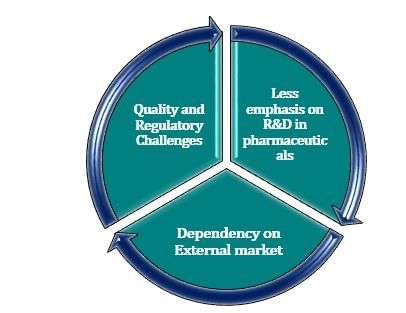
Why in News?
Global conflict levels have surged to their highest since World War II, resulting in over 233,000 lives lost and 120 million people displaced in 2024. This alarming rise in violence and instability underscores the limitations of the United Nations (UN), emphasizing the urgent need for significant reforms to enhance its capacity to tackle contemporary global challenges.
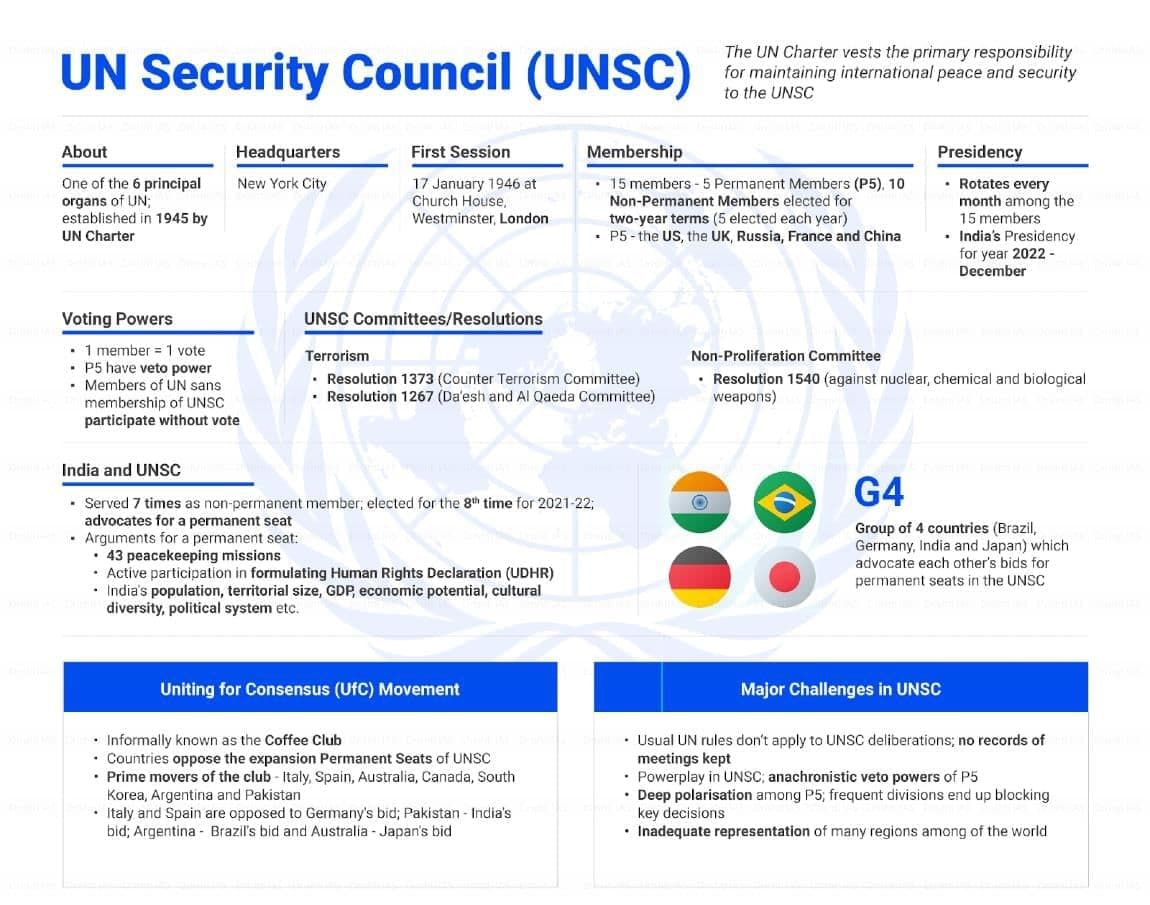
Key Takeaways
- The UN struggles to effectively prevent or resolve conflicts, as seen in ongoing crises like Russia-Ukraine and Israel-Hamas.
- Weak enforcement of peace and security leads to massive humanitarian disasters, with millions lacking basic necessities.
- The UN's outdated structure and reliance on voluntary troops hinder timely responses to crises.
- Minilateral forums are undermining the UN's role, diverting attention from its inclusive mandate.
- Chronic underfunding hampers the UN's ability to respond to global challenges effectively.
Additional Details
- Inability to Prevent or Resolve Conflicts: The UN has witnessed a decline in its role in conflict prevention and resolution, with 56 ongoing wars affecting 92 countries. This situation undermines the progress towards the UN's Sustainable Development Goals (SDGs) for 2030.
- Weak Enforcement of Peace and Security: The staggering number of deaths and displacements in 2024 reflects the UN's limited effectiveness in ensuring global peace and human rights, undermining its core goals.
- Eroding Influence and Outdated Structure: Established in 1945, the UN's structure, particularly the P5 veto power, often results in delayed actions that favor national interests over global justice.
- Rise of Minilateral Forums: The emergence of groups like Quad, BRICS, G7, and G20 bypasses the UN's inclusive framework, weakening its legitimacy and consensus-building role.
- Chronic Underfunding: The UN faces significant financial challenges due to delayed or reduced contributions from major economies, impacting its operations and missions.
Reforming the United Nations is crucial for ensuring its relevance and effectiveness in addressing the complex challenges of the 21st century. These reforms should focus on decision-making processes, peacekeeping mandates, budget structures, and governance to foster a more peaceful, just, and sustainable global environment.
World Economic Situation and Prospects - 2025
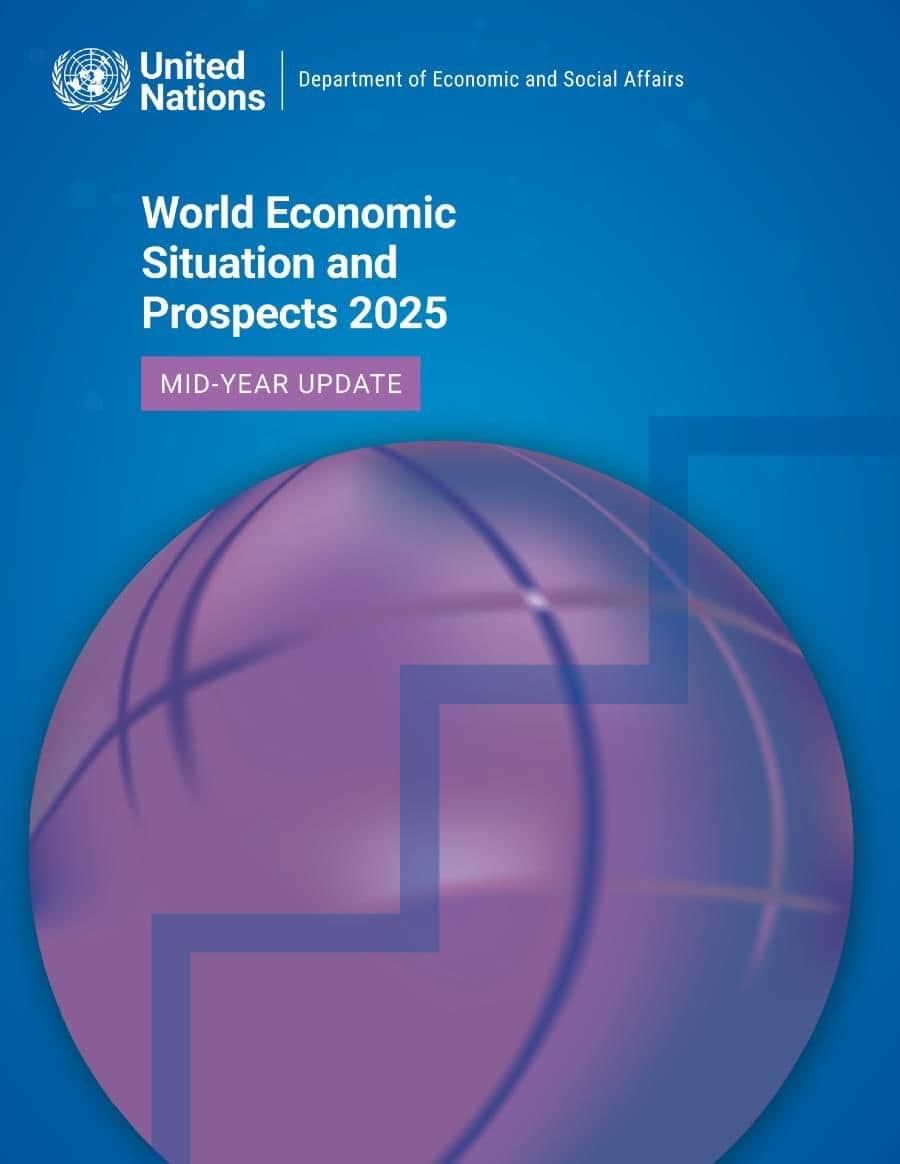
Why in News?
India's GDP growth forecast for 2025 has been revised down to 6.3%, a decrease from the previous projection of 6.6%. This update comes from the mid-2025 release of the World Economic Situation and Prospects (WESP) report, published by the United Nations Department of Economic and Social Affairs in collaboration with UNCTAD and five UN regional commissions. The report aims to provide global and regional economic outlooks to foster SDG-oriented and equitable growth policies.
Key Takeaways
- India-Specific Observations: India remains the fastest-growing major economy with a GDP growth rate of 6.3% in 2025 and 7.1% in 2024, projected to reach 6.4% in 2026.
- Inflation and Employment Outlook: Inflation is expected to decrease from 4.9% in 2024 to 4.3% in 2025, staying within the RBI’s target range of 2-6%. Unemployment rates are stable, but gender disparities in labor force participation remain a challenge.
- Key Drivers of Growth: Manufacturing GVA has increased to Rs 27.5 lakh crore (2023-24), with total exports expected to reach a record USD 824.9 billion in 2024-25, including services exports of USD 387.5 billion.
- Global Economic Outlook: Global GDP growth is anticipated to slow to 2.4% in 2025 from 2.9% in 2024. China's growth is estimated at 4.6%, influenced by weak demand and export disruptions.
Additional Details
- Manufacturing & Exports: India's manufacturing and export sectors have shown robust growth, indicating resilience in the economy. For example, defense exports have tripled, with India now supplying to nearly 100 countries.
- Food Inflation and Insecurity: Food inflation continues to be a significant issue, exacerbated by climate shocks and trade protectionism, affecting 343 million people worldwide. Countries like India, where food constitutes a large portion of household expenditure, are severely impacted.
- Rising Trade Risks: The increase in US tariffs has created a “tariff shock,” raising global trade costs and disproportionately affecting developing economies, which could lead to greater global inequality.
In summary, while India is projected to maintain strong growth relative to other major economies, global economic challenges such as inflation, trade tensions, and food insecurity pose significant risks that require careful management to ensure sustainable development.
India Rolls Over USD 50 Million Treasury Bill to Support Maldives
Why in News?
India has provided financial assistance to the Maldives by renewing a USD 50 million Treasury Bill under a special government-to-government (G2G) framework initiated in 2019. This move highlights the ongoing support and strengthening of bilateral ties between the two nations.
Key Takeaways
- India recognized the Maldives in 1965 and established its mission in Malé in 1972.
- Both countries are founding members of SAARC and signatories to SAFTA.
- India became the Maldives' second-largest trade partner in 2022 and the largest in 2023.
- Tourism in the Maldives constitutes 25% of its GDP, with India being the top source of tourists since 2020.
Additional Details
- Historical Ties: India and Maldives have a long-standing relationship, with significant milestones such as the establishment of diplomatic missions and participation in regional organizations.
- Trade and Economy: India extended USD 400 million in support to the Maldives in 2024, including a bilateral currency swap of Rs 3,000 crore. The State Bank of India rolled over USD 100 million of Treasury Bills for the Maldives, further solidifying economic assistance.
- The visa-free entry for Indian business travelers in 2022 has significantly bolstered commercial relations.
- In 2024, both countries finalized a framework to enhance the use of local currencies in cross-border trade.
In summary, India's financial support and strategic initiatives have played a crucial role in enhancing the Maldives' economic development and strengthening bilateral relations.
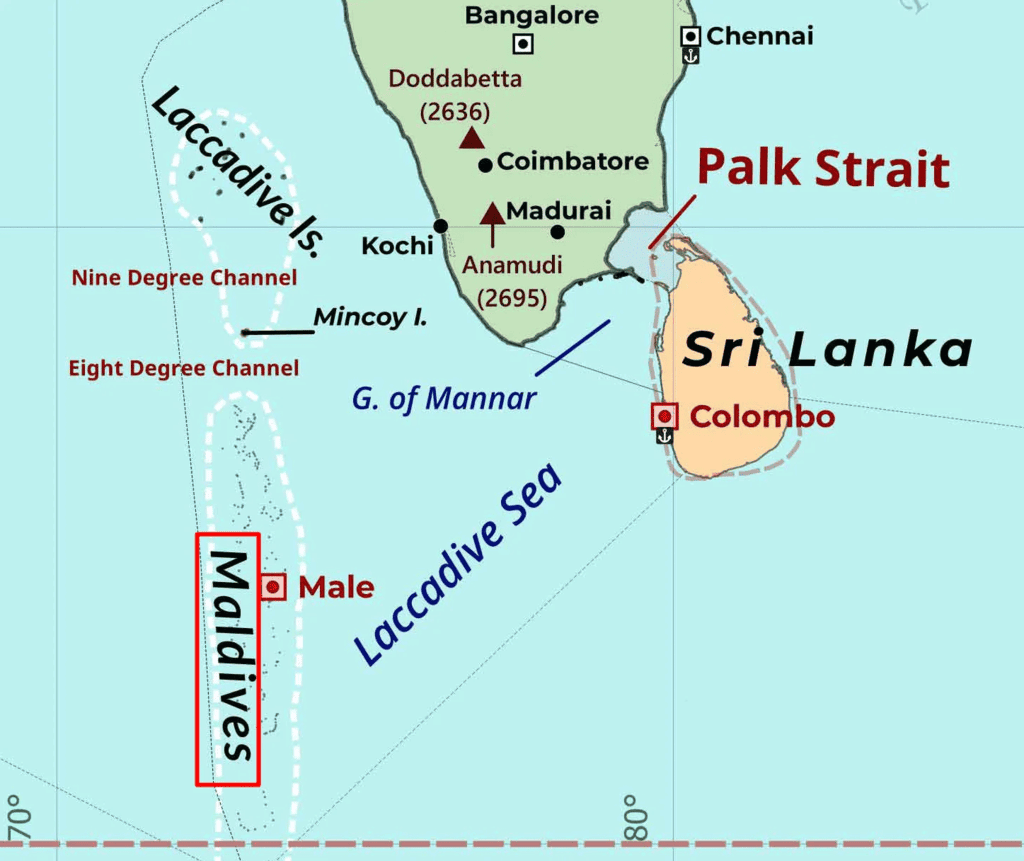
What are Treasury Bills (T-Bills)?
- T-Bills: These are short-term debt instruments issued by the Government of India via the Reserve Bank of India (RBI). They are a part of Government Securities (G-Secs) used to raise short-term funds.
- T-Bills are zero-coupon securities, meaning they do not pay periodic interest. Instead, they are sold at a discount and redeemed at face value upon maturity.
- They are issued with maturities of 91, 182, and 364 days and are traded in the market.
- Investors earn returns from the difference between the purchase price and the amount received at maturity.
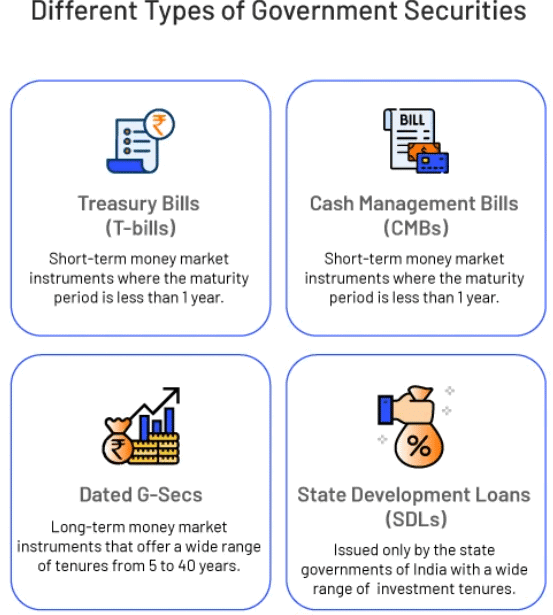
In essence, T-Bills provide a secure investment avenue for the public while facilitating the government's short-term funding needs.
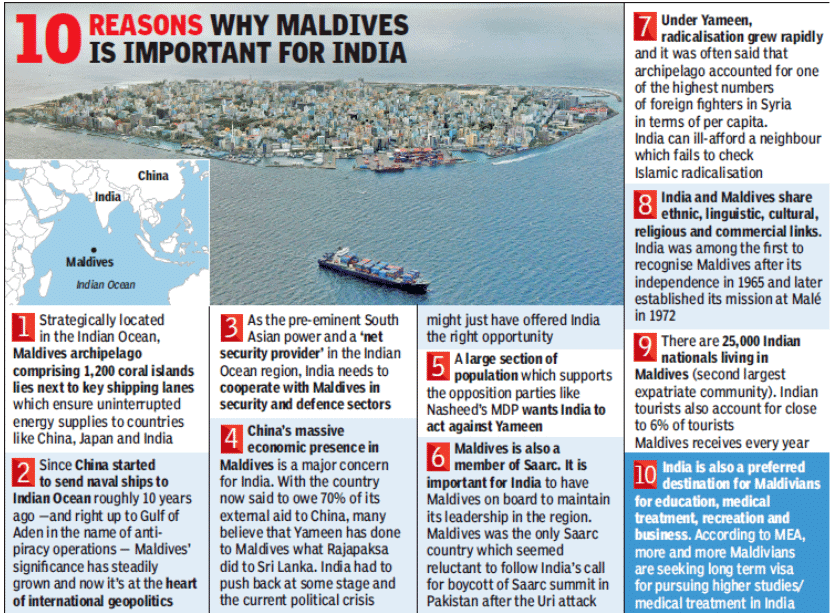
New Non-Permanent Countries to UNSC
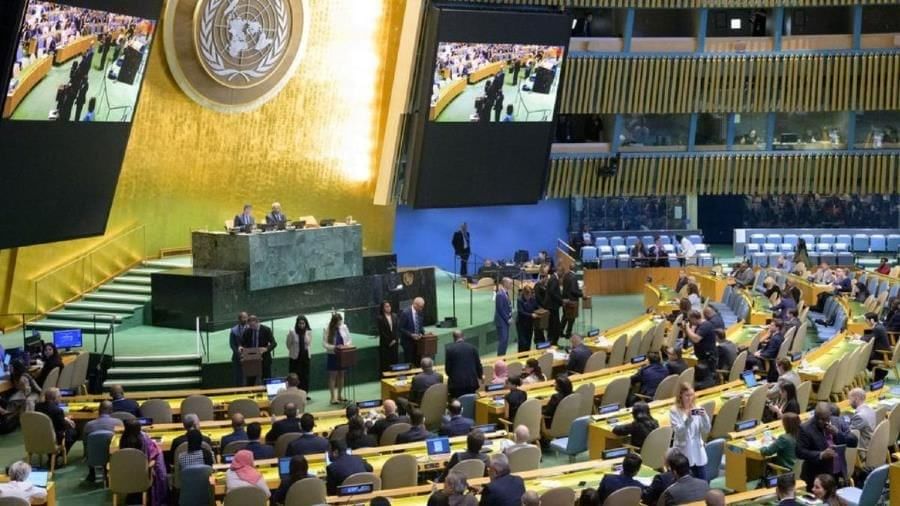
On June 3, 2025, the United Nations General Assembly elected five new non-permanent members to the UN Security Council (UNSC) for a two-year term starting in January 2026. The elected countries are:
- Bahrain
- Colombia
- Democratic Republic of the Congo (DRC)
- Latvia (marking its first time serving on the Council)
- Liberia
These countries will join the 15-member Council, which is crucial for maintaining international peace and security. Latvia ’s election is particularly noteworthy as it represents a significant diplomatic achievement for the country.
Why in News?
The election held by the UN General Assembly on June 3, 2025, aimed to choose five new non-permanent members for the UNSC, set to serve from January 2026 to December 2027. The vote was especially significant because it marked Latvia ’s first-ever election to the Council.
Aim and Objective of the Election
- To fill five rotating non-permanent seats on the 15-member Security Council.
- To maintain regional representation as per the UN Charter and promote equitable participation in global peace and security efforts.
- To strengthen the multilateral framework of international diplomacy through broader representation.
UNSC Election 2025: Results and Voting Breakdown
- Date of Election. June 3, 2025
- Total Member States Voting. 188
- Required Majority. Two-thirds of 193-member General Assembly
Vote Results by Country and Region
Africa & Asia-Pacific
- Bahrain. 186 votes
- Democratic Republic of the Congo. 183 votes
- Liberia. 181 votes
Eastern Europe
- Latvia. 178 votes (first-time member)
Latin America & Caribbean
- Colombia. 180 votes
Background and Static Information
UN Security Council Composition
- Permanent Members (P5). China, France, Russia, UK, USA
- Non-Permanent Members. 10, elected for staggered two-year terms
Previous Members Whose Term Ends in December 2025
- Algeria
- Guyana
- Republic of Korea
- Sierra Leone
- Slovenia
Non-Permanent Members Elected in 2024 (to serve till 2026)
- Denmark
- Greece
- Pakistan
- Panama
- Somalia
Regional Seat Distribution (out of 10 non-permanent seats)
- 3 for Africa
- 2 for Asia-Pacific
- 2 for Latin America and the Caribbean
- 2 for Western Europe and Others
- 1 for Eastern Europe
Significance of This Election
- Latvia’s Debut. Marks the country’s first-ever representation on the Security Council.
- Colombia. Elected for the 7th time, reflecting its active role in global peacebuilding.
- DRC, Bahrain, Liberia. Each brings regional perspectives and past UNSC experience.
- Strengthens Multilateralism. Election of diverse nations underscores the importance of inclusive global governance.
- Peace and Security Role. New members will participate in key decisions on international conflicts, sanctions, peacekeeping operations, and geopolitical crises.
|
88 videos|123 docs
|
FAQs on International Relations: June 2025 UPSC Current Affairs - UPSC Mains: International Relations
| 1. What are the main challenges faced by the United Nations in the 21st century? |  |
| 2. How does India's support for the Maldives influence regional stability? |  |
| 3. What are the implications of the World Economic Situation and Prospects report for global governance? |  |
| 4. In what ways can the UN be revitalized to address contemporary global issues? |  |
| 5. Why is it important for countries like India to engage in financial diplomacy with smaller nations? |  |





















